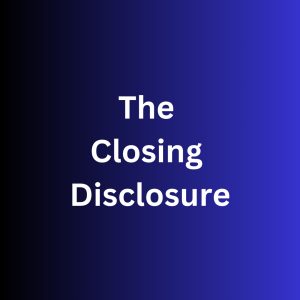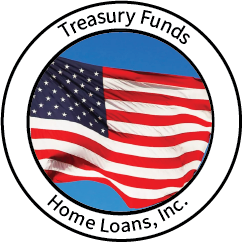
Closing Disclosure Explained
The Closing Disclosure is a comprehensive five-page document that furnishes conclusive details regarding the mortgage loan you’ve chosen. It outlines the loan terms, provides a projection of your monthly payments, and delineates the fees and additional costs associated with obtaining your mortgage, commonly referred to as closing costs.
Mandatory by regulation, the lender is obligated to furnish you with the Closing Disclosure at least three business days before the scheduled closing on the mortgage loan. This three-day period serves as an opportunity for you to meticulously compare the final terms and costs with the estimates received earlier from the lender.
Inital Loan Estimate to Final Closing Disclosure
Upon application, Treasury Funds Home Loans, Inc., will provide you with an Initial Loan Estimate and Estimated Closing Disclosure. Throughout the loan processing stages, we are committed to keeping you informed by providing updated estimates along the way, especially in the event of significant changes, such as your interest rate being locked. There are, however, certain changes that are strictly prohibited from changing once they have been initially disclosed.
The changes that are not allowed between the initial Loan Estimate (LE) and the final Closing Disclosure (CD) are categorized into three types, often referred to as “zero tolerance,” “10% cumulative tolerance,” and “no tolerance” categories. These limitations are designed to ensure that certain costs do not increase beyond a specified limit, providing borrowers with more predictability and protection against unexpected financial surprises. Here are the details for each category:
Zero Tolerance: Fees that cannot increase at all between the Loan Estimate and the Closing Disclosure.
These include fees paid to the lender or mortgage broker, such as the lender’s own fees and points, and fees for services the borrower did not shop for, like the appraisal fee.
10% Cumulative Tolerance: Fees that, in total, cannot increase by more than 10% between the Loan Estimate and the Closing Disclosure. This category includes charges for certain third-party services that the borrower can shop for, like title services and government recording fees.
No Tolerance or Unlimited Variance: Certain fees are not subject to any restrictions and can increase without limitation. This category includes fees paid to third-party service providers chosen by the borrower, such as homeowner’s insurance premiums, property taxes, and fees for services the borrower selects but is not required to use the identified provider.
It’s important to note that some fees can increase without limit, while others have specific tolerances. Borrowers receive the Loan Estimate early in the loan application process and the Closing Disclosure at least three business days before closing. This allows borrowers to review the final terms and costs, ensuring transparency and the ability to address any concerns with the lender before finalizing the mortgage transaction.
Moreover, it affords you sufficient time to address any queries or concerns with your lender before finalizing the transaction at the closing table.
Key Details Typically Included in a Closing Disclosure
Loan Terms
Loan amount: The total amount borrowed.
Interest rate: The annual interest rate on the loan.
Monthly principal and interest: The amount the borrower will pay each month towards the loan.
Projected Payments
Breakdown of monthly payments over the life of the loan, including principal and interest, mortgage insurance, and estimated escrow amounts for property taxes and insurance.
Costs at Closing
A detailed list of all costs associated with closing the loan, including origination charges, services the borrower cannot shop for, services the borrower can shop for, taxes and other government fees, and prepaids.
Loan Costs
Origination charges: Fees charged by the lender for processing the loan.
Services borrower cannot shop for: Fees for services required by the lender that the borrower cannot shop for (e.g., appraisal fees).
Services borrower can shop for: Fees for services the borrower can shop for (e.g., survey fees).
Other Costs
Taxes and other government fees: Costs associated with government taxes and fees.
Prepaids: Payments for items such as homeowner’s insurance and property taxes that are due at closing.
Loan Calculations
Total of payments: The total amount the borrower will have paid over the life of the loan if they make all scheduled payments.
Finance charge: The total cost of the loan, including interest and fees.
Cash to Close
The total amount of money the borrower needs to bring to the closing table.
Summaries of Transactions
Summaries of transactions such as the seller credits, adjustments, and amount paid by/for the borrower.
Loan Disclosures
Information about the loan, including whether the loan has a prepayment penalty or a balloon payment.
The document is part of the Consumer Financial Protection Bureau’s (CFPB) initiative to ensure transparency in the mortgage lending process
If you are interested on a loan estimate for a particular loan you may be interested in, please contact Treasury Funds Home Loan, Inc. today!
You may also visit our pre-qualification page for more information.
